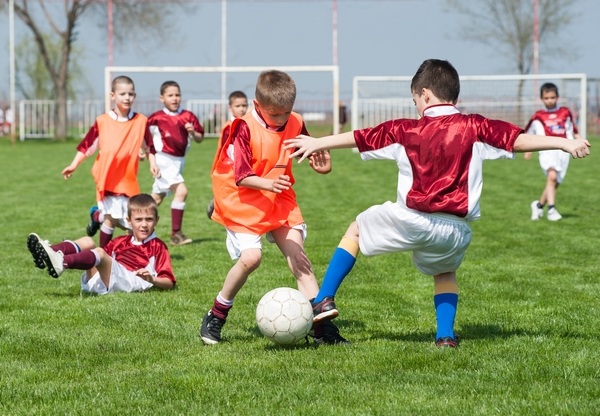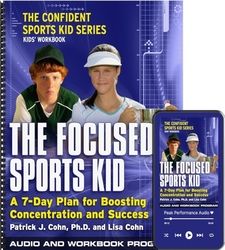How to Help Kids Bounce Back After Setbacks
Communicating feelings, deep breathing and exercise are three activities that help boost resilience in sports kids, says Dr. Randall Bell, a former youth sports coach and sports parent, a socio-economist and author of “Post-Traumatic Thriving: The Art, Science, & Stories of Resilience.”
Coaches and parents can help kids bounce back after setbacks by encouraging them to talk about how they feel, helping them practice deep breathing and ensuring they get exercise. It’s also important for coaches and parents to acknowledge kids’ feelings and use positive language, he says.
Coaches naturally help accomplish these goals by providing an outlet for exercise, holding team meetings and being good listeners, he says.
Bell experienced his own trauma after undergoing open heart surgery as a child, he says. At the time, his parents didn’t talk about the surgery or offer an opportunity for him to discuss how he was feeling.
“Sitting in the fire” is Bell’s term for talking about and acknowledging feelings. “My parents tended to not talk about things. I was born with a congenital heart defect that was corrected when I was 11. Nobody talked to me about it,” he says.
Grounding, or deep breathing exercises, are a powerful tool for sports kids. “The science is very clear out of Harvard,” says Bell. “You can call it meditation or yoga; deep breathing helps us work through the difficult things we go through.”
He says that when kids feel stressed or upset, they should close their eyes and take ten deep breaths. This can reset their nervous systems, calming them.
Coaches can establish pre-game rituals that involve kids talking about how they feel, then shutting their eyes and taking ten deep breaths, says Bell.
Coaches and parents can help kids open up about their feelings by sharing some of their own challenges.
“If the coach says, ‘I was feeling a little anxiety’ and talks about challenges, kids are more open to expressing their feelings,” Bell says. “The coaches need to be role models.”
If kids freeze up due to anxiety, it’s important to acknowledge these feelings and tell them that the feelings are natural. Don’t shame them, he says. “You need to keep it positive rather than instill fear in them. Language choices are very important,” says Bell.
Overall, coaches can play an important role in building resilience in sports kids.
“If kids are feeling anxious or depressed, coaches can help soothe them by giving them an outlet for exercise and by listening and encouraging them to talk.
“Doing a good job of coaching is a really wonderful thing on many levels,” Bell says.
“I did review the bonus eBook “10 Tips to Improve Young Athletes Confidence and Success”. I thought the information presented was on target with what I see all over with kids today, not just in sports but in everyday life, in school, with peers and so on.
The e-book addresses the “how” and “why” negative belief systems too often become internalized by kids in sports with a ripple effect that more than often transfers to other areas of the athlete’s life. Many of the solutions give me some good ideas to add to my coaching this upcoming basketball season with the kids this winter.”
Listen to the Full Podcast:
Related Articles on Youth Sports:
- Do Your Kids Feel like Sports is a Job?
- How Steph Curry Became Resilient: A Lesson for Parents
- Help Kids Be More Mentally Resilient
*Subscribe to The Sports Psychology Podcast on iTunes
*Subscribe to The Sports Psychology Podcast on Spotify
Help Your Young Athletes Improve Focus In Sports!
Are your young athletes easily distracted by people shouting on the sidelines? Do they obsess over their mistakes? Do they worry about what people think of them?
These issues will cause their concentration and performance to suffer!The Focused Sports Kid helps kids overcome distractions that can hurt their performance in sports.
The Focused Sports Kid program is actually two programs: one for sports parents/coaches that provides mental game tips especially designed for parents and coaches, and for young athletes, ages 8 to 12, that will walk them through 7 simple lessons in mental focus in sports.


